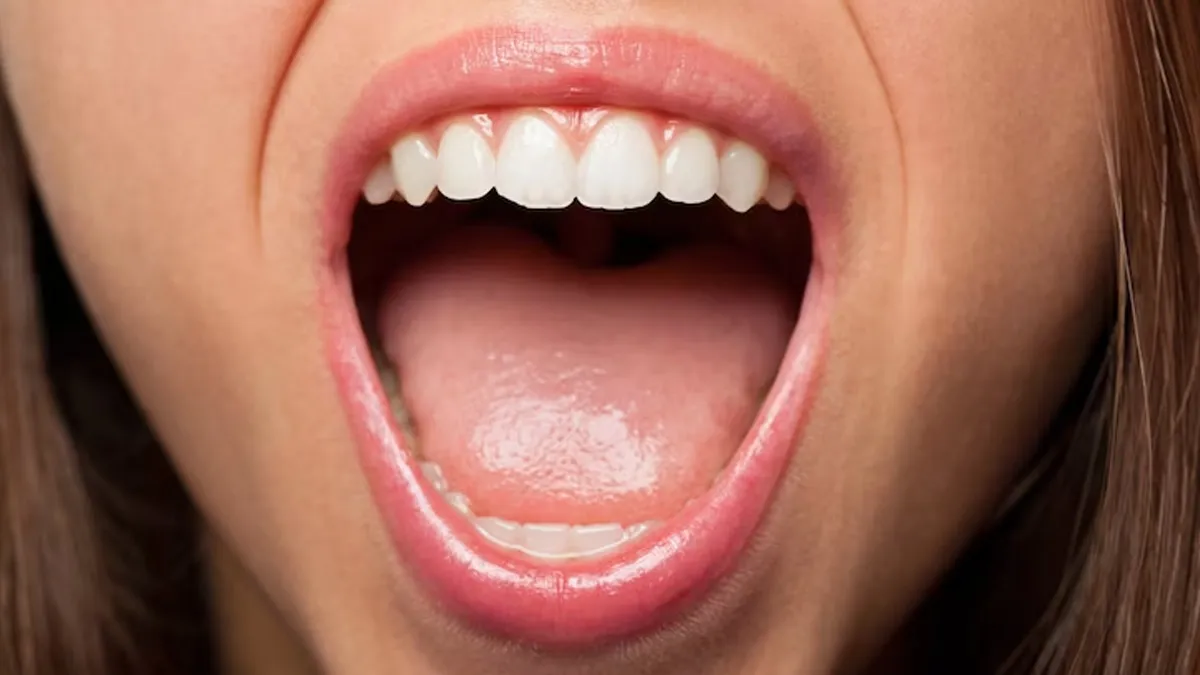
We’ve all experienced it – a parched, cottony feeling in our mouth after a run or a particularly salty meal. And almost all the time, our immediate thought is that it's dehydration. According to experts, if a glass of water is all it takes to banish this discomfort, it is all fine. But what if that dry mouth persists, even when you’re diligently hydrating? What if the culprit isn't simply a lack of fluids, but something more complex?
Table of Content:-
In an exclusive interaction with the editorial team of Onlymyhealth, our expert, Dr Shrey Kumar Srivastav, General Physician and Senior Consultant, Sharda Hospital - Noida, explained that this phenomenon happens because of dry mouth, or xerostomia. It's a condition where your salivary glands aren't producing enough saliva to keep your mouth wet. While the most usual cause is dehydration, it's important to know that a dry mouth regularly can be an indicator of a variety of underlying problems affecting not only your comfort, but your oral and even systemic well-being.
Other Signs Of Dry Mouth Except Dehydration
So, how do you know if your dry mouth is more than just a cry for water? Here are a few lesser-known, but important, indicators to be on the lookout for, as per our expert:
1. Chronic Bad Breath (Halitosis)
Saliva provides a natural mouthwash effect, washing away bacteria and food debris. When saliva production is low, these smelly bacteria multiply, causing chronic bad breath that brushing cannot eradicate. If your breath is persistently not so fresh, and you're positive you're well-hydrated, dry mouth may be the secret culprit.

Also Read: Hidden Signs That Your Liver Is Storing Fat! Expert Shares Insights
2. Trouble Chewing, Swallowing, or Talking
Saliva lubricates your food, making it simple to chew and swallow. You may be having trouble breaking down food, or feel like food is stuck if you have too little saliva. Also, talking becomes a hassle, with a sticky tongue and slurred or hard-to-speak words.
3. Changes in Taste and Mouth Sores
A healthy mouth needs a proper balance of saliva's moisture and enzymes in order to effectively sense tastes. If your mouth is consistently dry, you may feel a loss of taste, or even a metallic or changed taste sensation. In addition, a dry mouth condition dries out the fine tissues, making them more prone to infection and irritation, causing mouth sores, cracked lips, or even corner-of-the-mouth fissures.
4. More Tooth Decay and Gum Disease
This is likely one of the most severe effects of chronic dry mouth. Saliva is your mouth's built-in protection against cavities. It cancels out the acid that is created by bacteria, flushes out food particles, and assists in remineralisation of the tooth enamel. Without this barrier, teeth are very susceptible to decay, and it usually develops very quickly. The dryness also leads to the buildup of plaque, which increases the risk of gum inflammation (gingivitis) and more serious gum disease (periodontitis).

Also Read: How Yoga Can Reclaim Your Health Naturally: A Research-Backed Perspective
5. A Rough or Dry Tongue
A healthy tongue will look moist and slightly bumpy unlike this. If your tongue feels rough, dry, or even pebbly, it's a strong sign of inadequate saliva production. You may even experience a burning feeling on your tongue or in other areas of your mouth.
What Else Can Cause Dry Mouth?
Dr Srivastav highlighted that aside from dehydration, many causes can lead to dry mouth, namely:
- Certain medications
- Some medical conditions
- Parkinson's disease
- Stress or anxiety
Bottomline
If you notice any of these symptoms and your dry mouth continues even after drinking plenty of water, it's important that you speak with your doctor or dentist. They can determine the root cause of the problem and provide suitable measures for controlling your symptoms, maintaining your oral health, and enhancing your well-being. Don't underestimate dry mouth as a mere nuisance, as now you know that it may be your body's signal telling you something more significant.
Also watch this video
How we keep this article up to date:
We work with experts and keep a close eye on the latest in health and wellness. Whenever there is a new research or helpful information, we update our articles with accurate and useful advice.
Current Version